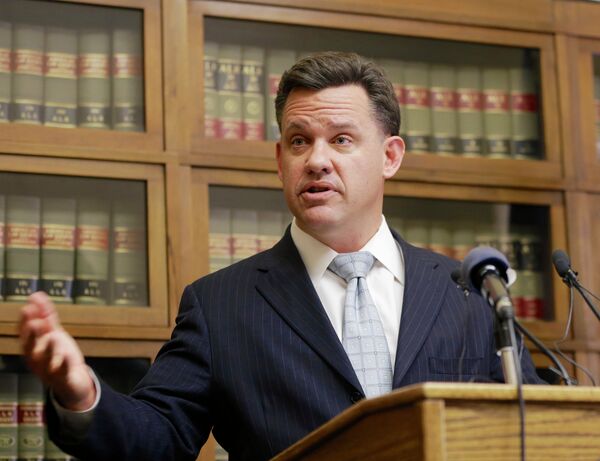The lawsuit challenges Colorado’s Amendment 64, which provides for state regulation of a legal marijuana industry, allowing recreational pot use and sales for adults aged 21 and over.
The legal challenge accuses Colorado of creating "a dangerous gap" in the federal drug control system, where state law is preempted by the federal Controlled Substances Act (CSA).
"Marijuana flows from this gap into neighboring states, undermining plaintiff states' own marijuana bans, draining their treasuries, and placing stress on their criminal justice systems," the lawsuit said.
— EDM IS LIFE (@_QuincyQuotes_) December 18, 2014
Nebraska Attorney General Jon Bruning argued that although Colorado voters passed Amendment 64 to legalize recreational pot, the growth and sale of the drug remain illegal under federal law, and this discrepancy causes interstate trafficking problems.

"Federal law undisputedly prohibits the production and sale of marijuana," Bruning said in a statement, adding that drugs threaten the health and safety of children, and calling narcotics trafficking a national, interstate problem.
“Colorado has created a system that legalizes, promotes and facilitates distribution of marijuana,” he added. “The illegal products of this system are heavily trafficked into neighboring states, causing an unnecessary burden on the state of Nebraska. Colorado has undermined the United States Constitution, and I hope the U.S. Supreme Court will uphold our constitutional principles.”
Colorado Attorney General John Suthers said that he was “not entirely surprised” by the neighboring states’ challenge against his state, considering their concern about Colorado-grown pot crossing their borders. However, he argued that the responsibility to enforce federal laws is not Colorado’s and reassured defending his state’s new law.
“Because neighboring states have expressed concern about Colorado-grown marijuana coming into their states, we are not entirely surprised by this action,” Mr. Suthers said. “However, it appears the plaintiffs’ primary grievance stems from non-enforcement of federal laws regarding marijuana, as opposed to choices made by the voters of Colorado. We believe this suit is without merit and we will vigorously defend against it in the U.S. Supreme Court.”
— king_eakers17™ (@seemetweet123) December 19, 2014
Oklahoma Attorney General Scott Pruitt said the flow of marijuana into his state has made it tougher to enforce anti-pot laws.
“As the state’s chief legal officer, the attorney general’s office is taking this step to protect the health and safety of Oklahomans,” he said.
The move comes as voters in Alaska an Oregon opted to allow the use of pot in November. D.C. voters also approved an initiative to legalize the limited possession and cultivation of marijuana, however, some Congressional republicans say funding provisions prevent implementing the measure.
Marijuana is a controlled substance that is banned under federal law. However, the Justice Department issued a memo last year giving states leeway to frame their own rules on legalizing pot within their territories, but taking steps to keep the drug within state borders.
In Sidney, Nebraska, close to the Colorado border, police say half of all traffic stops result in marijuana arrests, according to KLKN-TV in Lincoln.
Colorado Gov. John Hickenlooper told the Denver Post that he has discussed such concerns with officials in Nebraska and Oklahoma, adding, “I’m not sure filing a lawsuit is the most constructive way to find a solution to whatever issues there are.”


